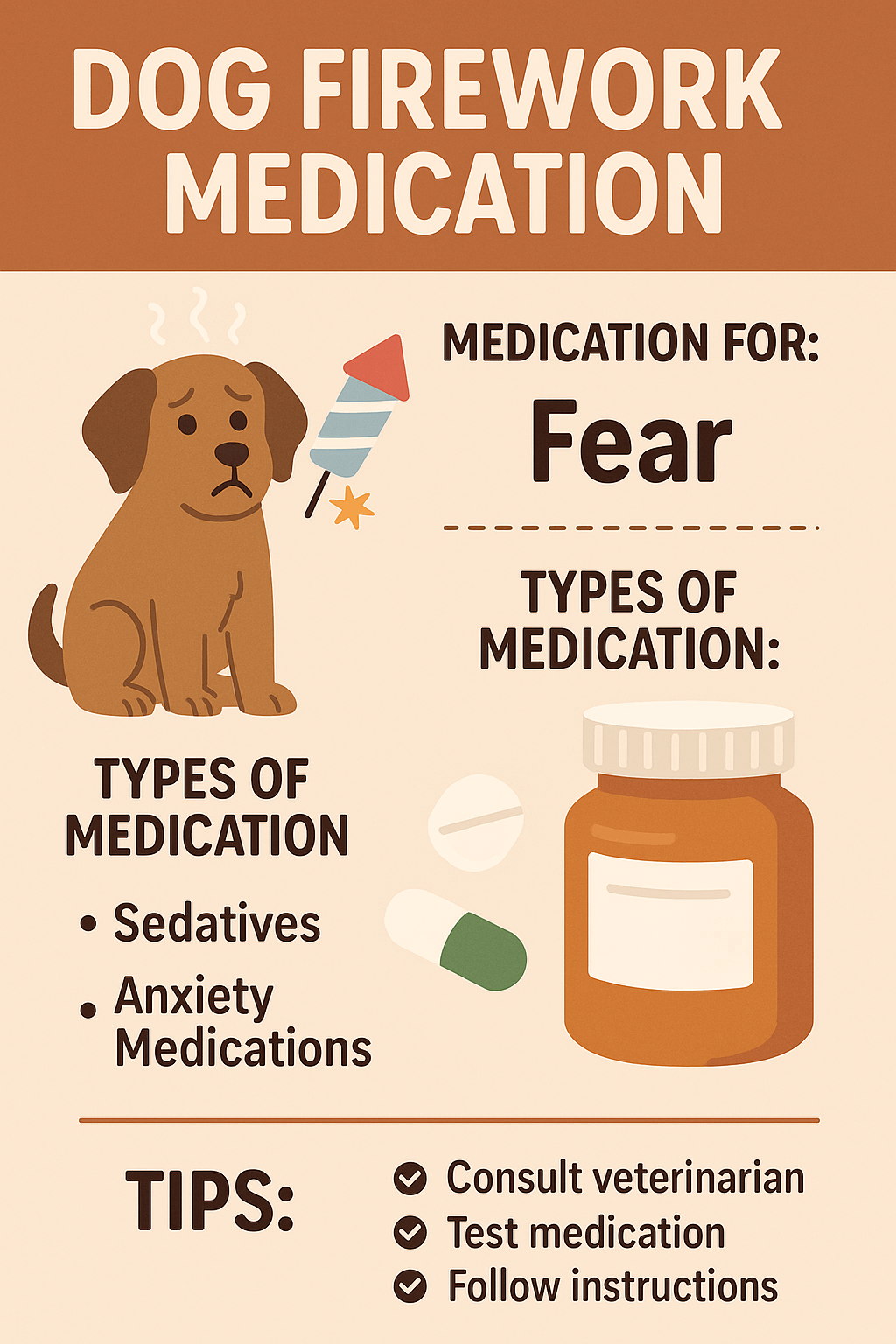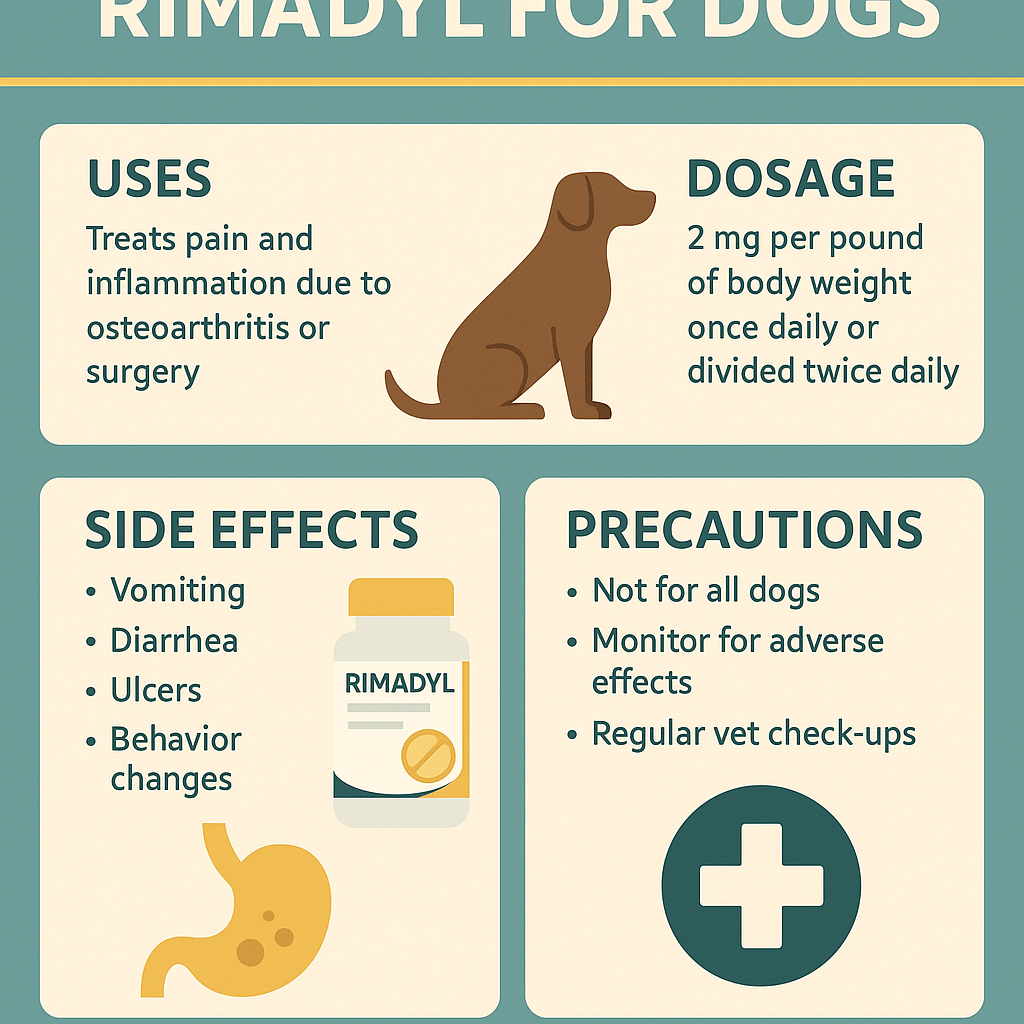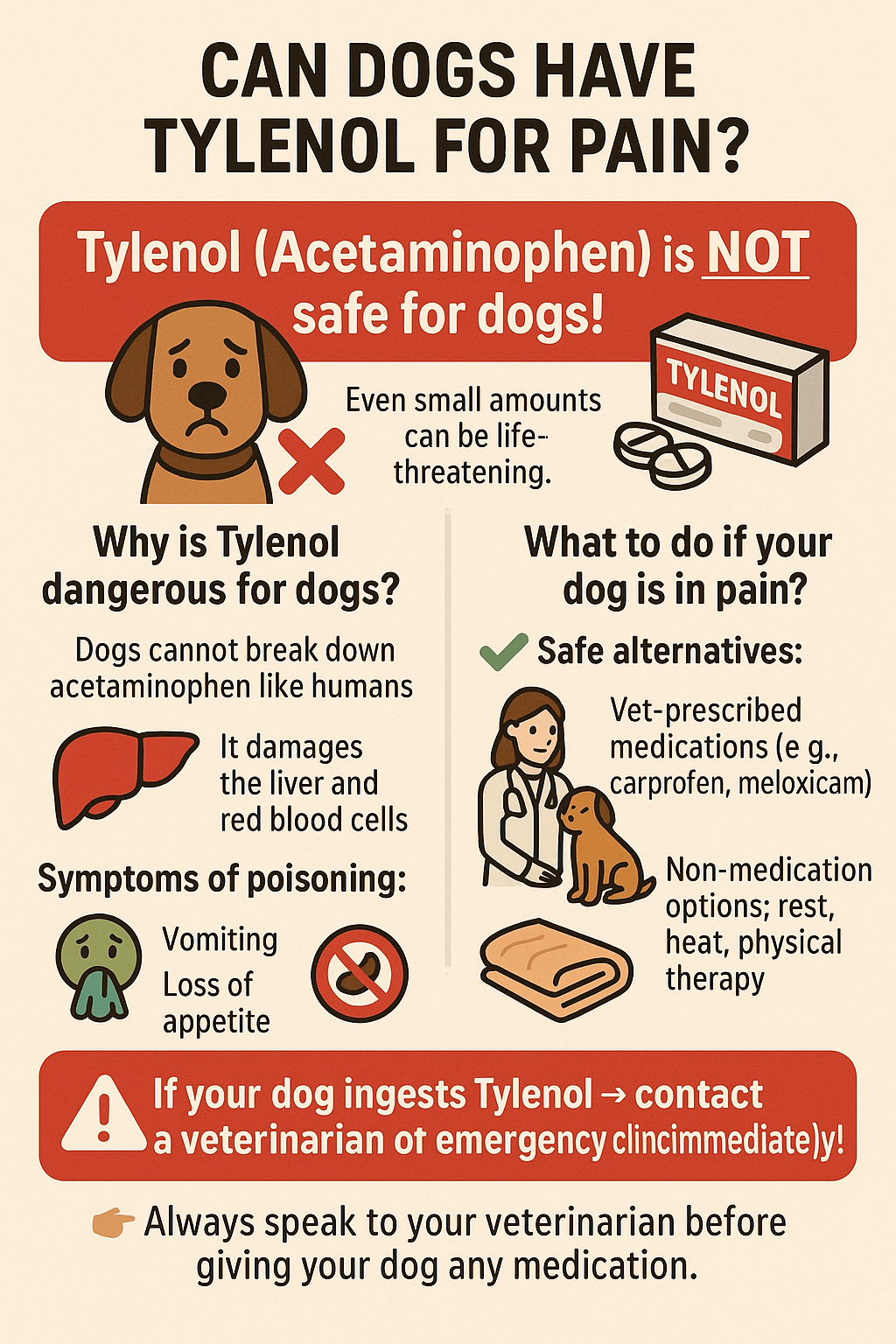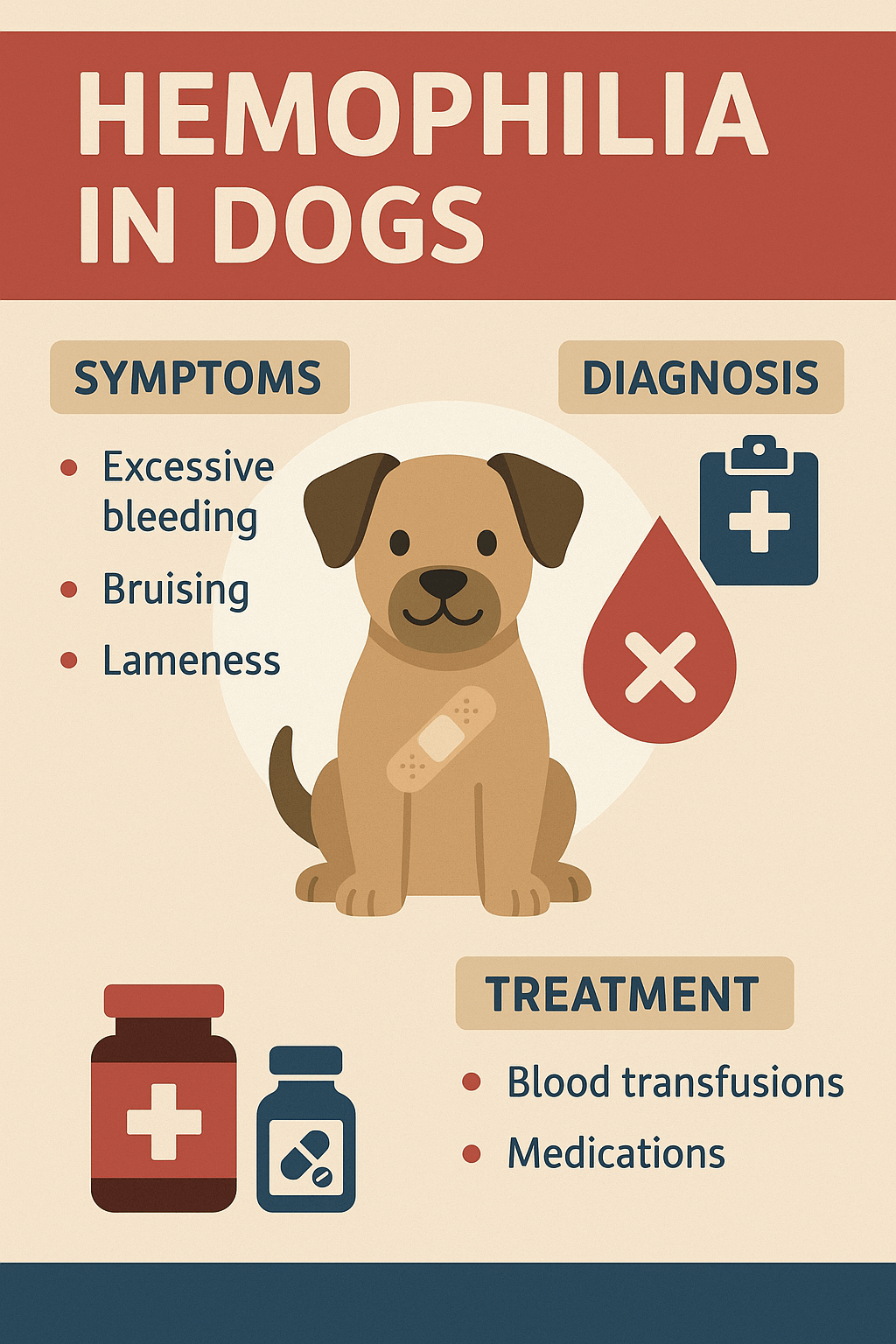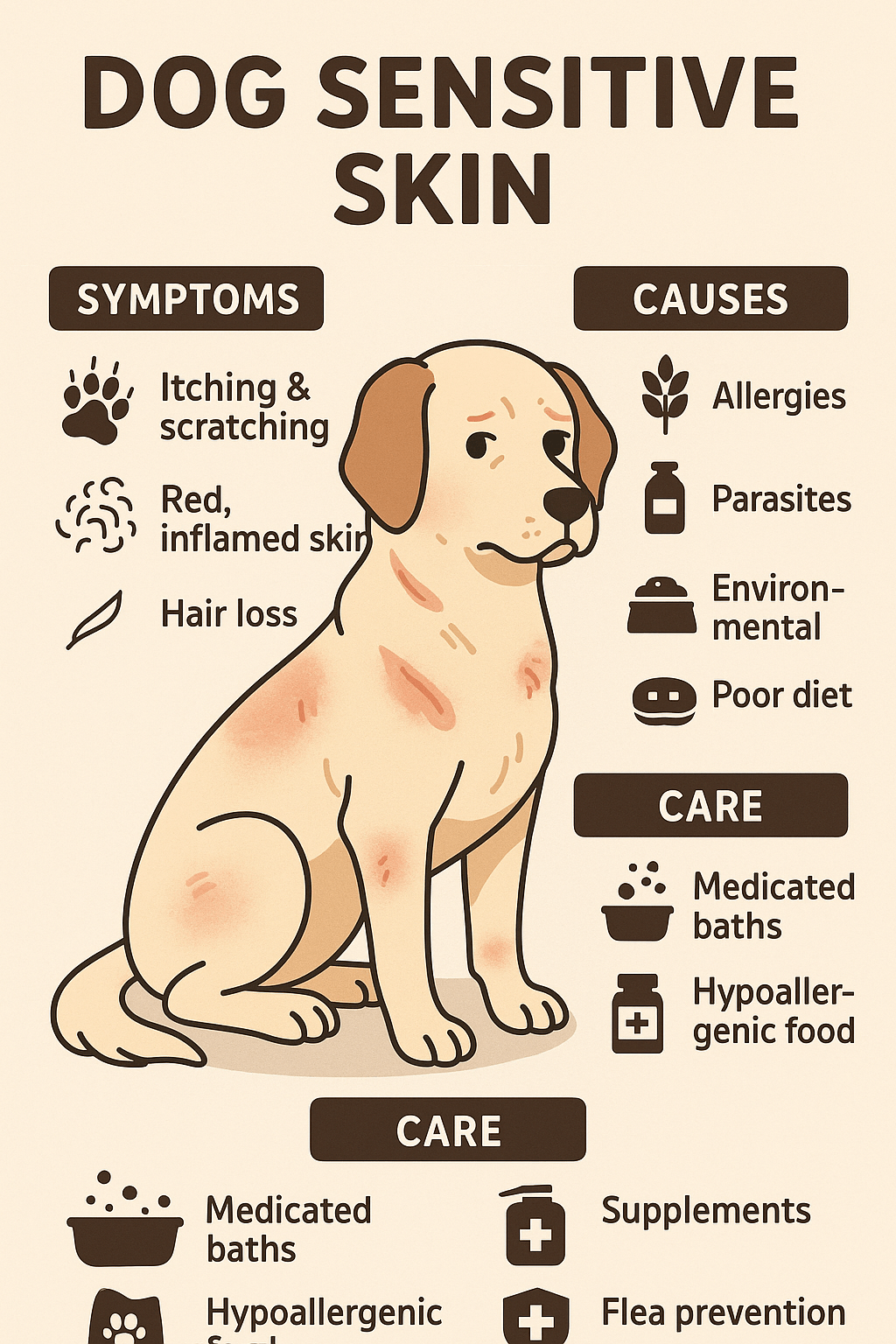Dog Firework Medication: Keeping Your Pup Calm During Loud Celebrations
Fireworks are a thrilling part of celebrations for many people, but for dogs, they can be a source of immense stress and anxiety. The loud noises, bright flashes, and sudden booms can trigger panic in even the calmest pups. Thankfully, there are solutions to help your dog cope with fireworks, including medications and other calming strategies. In this blog post, we’ll explore everything you need to know about dog firework medication, from how it works to alternative methods for keeping your furry friend relaxed during noisy events. With the right preparation, you can ensure your dog feels safe and secure when the sky lights up.
The Impact of Loud Noises on Pets
“A heartbreakingly large number of pets suffer from terrible fear and anxiety from loud noises such as fireworks displays, thunderstorms, gunshots, motorbike engines, or even things like a car backfiring.”
Types of Dog Firework Medications Available
When it comes to calming your dog during fireworks, there are several types of medications and supplements that can help reduce anxiety. Each option has its own benefits and considerations, so it’s important to choose the one that best suits your dog’s needs.
Prescription Anti-Anxiety Medications:
These are prescribed by veterinarians and include drugs like alprazolam or trazodone, which can help reduce anxiety during stressful situations.Over-the-Counter Calming Supplements:
Products containing ingredients like L-theanine, melatonin, or chamomile can promote relaxation without requiring a prescription.Pheromone-Based Treatments:
Synthetic pheromones, such as those found in Adaptil collars or diffusers, mimic the calming scents produced by mother dogs to soothe anxious pets.Natural Remedies and Herbal Solutions:
Herbs like valerian root, passionflower, or CBD oil may provide mild sedation and stress relief for dogs sensitive to traditional medications.Sedatives and Tranquilizers:
For severe cases of anxiety, veterinarians may prescribe stronger sedatives to help keep your dog calm and prevent destructive behavior.
While these medications can be effective, always consult your vet before administering any treatment to ensure it’s safe for your dog.
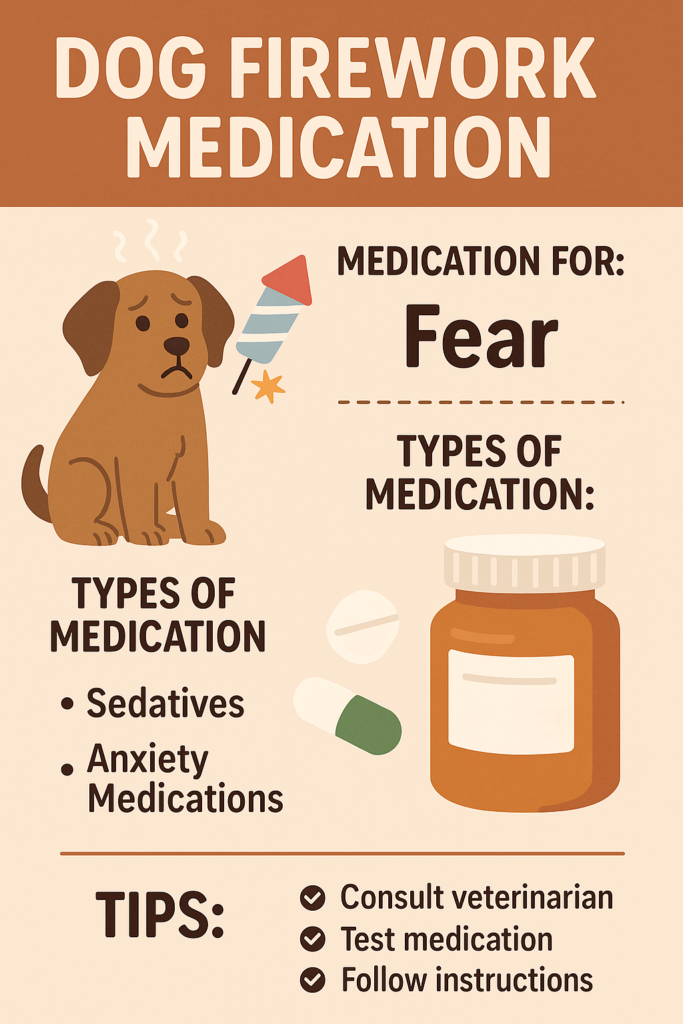
Non-Medication Strategies to Complement Firework Medication
In addition to medication, combining non-medical techniques can enhance your dog’s comfort during fireworks. These strategies work alongside treatments to create a calming environment for your pup.
Create a Safe Space:
Set up a cozy, enclosed area in your home where your dog can retreat, complete with their favorite blanket, toys, and comforting scents.Use White Noise or Music:
Playing calming music or white noise can drown out the sound of fireworks and help distract your dog from the noise outside.Desensitization Training:
Gradually exposing your dog to recorded firework sounds at low volumes can help them become less reactive over time.Comforting Clothing:
Anxiety wraps like Thundershirts apply gentle pressure to your dog’s body, mimicking the feeling of being hugged and providing a sense of security.Stay Close and Reassure:
Your presence can be incredibly reassuring. Stay calm and avoid reinforcing fearful behavior by offering soothing words and gentle petting.
These complementary strategies can make a significant difference in helping your dog feel more at ease during fireworks.
Check this guide 👉Does Benadryl Make Dogs Sleepy? Best 7 Expert Tips!
Check this guide 👉Dog Thyroid Medication Side Effects: Best 7 Expert Tips!
Check this guide 👉Dog Ringworm Medicine: Best 7 Expert Tips!
Medication Options | Non-Medication Calming Techniques |
|---|---|
Prescription anti-anxiety medications | Creating a safe space in your home |
Over-the-counter calming supplements | Using white noise or calming music |
Pheromone-based treatments (e.g., Adaptil) | Desensitization training with firework sounds |
Natural remedies like CBD oil | Using anxiety wraps or Thundershirts |
Sedatives for severe anxiety | Staying close to comfort and reassure |
Signs Your Dog Needs Firework Medication
Not all dogs require medication to handle fireworks, but some exhibit clear signs of distress that indicate professional help is necessary. Recognizing these behaviors can guide you in seeking appropriate solutions.
Excessive Panting or Drooling:
These physical symptoms often signal extreme stress or discomfort in dogs exposed to loud noises.Destructive Behavior:
Chewing furniture, scratching doors, or attempting escape are common reactions to fireworks-induced anxiety.Hiding or Trembling:
Dogs that retreat to small spaces or shake uncontrollably may be overwhelmed by the noise.Barking or Whining Nonstop:
Vocalizing excessively is a sign your dog is trying to communicate their fear and discomfort.Attempts to Escape:
Some dogs become so panicked that they try to flee, risking injury or getting lost in the process.
If your dog displays these behaviors, it may be time to consider medication or professional guidance to help them cope.
How to Prepare Your Dog for Fireworks Season
Proper preparation can significantly reduce your dog’s anxiety during fireworks season. Taking proactive steps ensures your pup feels safe and supported throughout the festivities.
Consult Your Veterinarian Early:
Schedule an appointment well in advance to discuss medication options and develop a plan tailored to your dog’s needs.Stock Up on Supplies:
Ensure you have calming aids, medications, or supplements ready before fireworks begin.Practice Calming Routines:
Introduce your dog to their safe space and calming tools like music or anxiety wraps ahead of time.Update Identification Tags:
In case your dog escapes, ensure their ID tags and microchip information are current and accurate.Plan for Extra Attention:
Spend extra time comforting and engaging with your dog during fireworks to reinforce feelings of safety.
By preparing early, you can minimize stress for both you and your dog during fireworks season.
Common Mistakes to Avoid When Using Firework Medication
Using firework medication improperly can lead to ineffective results or unintended side effects. Avoid these common mistakes to ensure your dog’s safety and comfort.
Skipping the Vet Consultation:
Self-medicating without veterinary advice can result in incorrect dosages or harmful drug interactions.Administering Medication Too Late:
Waiting until fireworks begin may mean the medication doesn’t have enough time to take effect.Relying Solely on Medication:
Medication works best when combined with environmental modifications and calming techniques.Ignoring Side Effects:
Monitor your dog closely for adverse reactions, such as lethargy or gastrointestinal upset, and report them to your vet.Using Expired or Improper Products:
Always check expiration dates and ensure you’re using products specifically formulated for dogs.
Avoiding these pitfalls ensures your dog receives the maximum benefit from their medication.
Alternative Solutions for Dogs Unresponsive to Medication
Some dogs may not respond well to traditional medications, requiring alternative approaches to manage their firework anxiety. These options can complement or replace medication entirely.
Behavioral Therapy:
Working with a certified animal behaviorist can help address underlying anxiety triggers.Interactive Toys and Puzzles:
Engaging your dog’s mind with toys distracts them from the noise and reduces stress.Calming Apps or Devices:
Specialized apps and devices emit frequencies designed to soothe anxious pets.Essential Oils (Pet-Safe):
Lavender or frankincense oils, when used safely, can promote relaxation in dogs.Exercise Before Fireworks:
Tiring your dog out with a long walk or play session can help them stay calmer during fireworks.
These alternatives offer creative ways to support dogs who struggle with traditional treatments.
Seasonal Tips for Managing Dog Anxiety Beyond Fireworks
Fireworks aren’t the only seasonal events that can stress your dog. Holidays and celebrations often bring additional challenges that require careful management.
Thunderstorm Anxiety:
Similar to fireworks, thunderstorms can trigger fear. Use the same calming strategies to help your dog cope.Costume Stress During Halloween:
Avoid dressing your dog in costumes unless they enjoy it, as unfamiliar clothing can cause discomfort.Increased Foot Traffic on Holidays:
More visitors can overwhelm shy dogs. Provide a quiet retreat to help them feel secure.New Year’s Eve Celebrations:
Plan ahead for late-night fireworks and parties to minimize disruption to your dog’s routine.Travel Stress During Summer Breaks:
If traveling, bring familiar items like bedding and toys to create a sense of stability.
By addressing these seasonal stressors, you can ensure your dog remains happy and relaxed year-round.
Frequently Asked Questions About Dog Firework Medication
Are firework medications safe for my dog?
Yes, when prescribed or recommended by a veterinarian, firework medications are generally safe and effective.
Can I give my dog human anti-anxiety medications?
No, human medications can be toxic to dogs. Always consult your vet before giving any medication.
How long does it take for firework medication to work?
The onset time varies depending on the medication—some take effect within 30 minutes, while others require longer.
What if my dog refuses to take medication?
Many medications come in treat forms or can be hidden in food. Discuss alternatives with your vet if needed.
Are natural remedies as effective as prescription medications?
Natural remedies can help mild cases, but severe anxiety may require stronger prescription options.
Ensuring Your Dog’s Comfort During Fireworks
Fireworks may be a joyous spectacle for humans, but they can be terrifying for our canine companions. By understanding your dog’s needs and exploring medication options alongside calming strategies, you can provide the support they need to feel safe and secure. Whether through prescription treatments, natural remedies, or creating a comforting environment, your efforts will go a long way in easing their anxiety. Remember, every dog is unique, so tailor your approach to suit their personality and preferences. With patience and preparation, you can transform fireworks season into a stress-free experience for your beloved pup.
Rimadyl for Dogs: Best 7 Expert Tips! Discover expert advice on using Rimadyl safely, managing pain, and improving your dog’s mobility with trusted veterinary insights.
Can Dogs Have Tylenol for Pain? Best 7 Expert Tips! Discover the risks, safe alternatives, and expert advice on managing your dog’s pain effectively while avoiding harmful medications.
Understanding Hemophilia in Dogs: Best 7 Expert Tips! Discover expert advice on managing hemophilia, recognizing symptoms, and ensuring your dog’s well-being with practical care strategies.
Understanding Dog Sensitive Skin: Best 7 Expert Tips! Discover expert advice on managing dog sensitive skin, relieving irritation, and improving your pup’s comfort with practical solutions.

